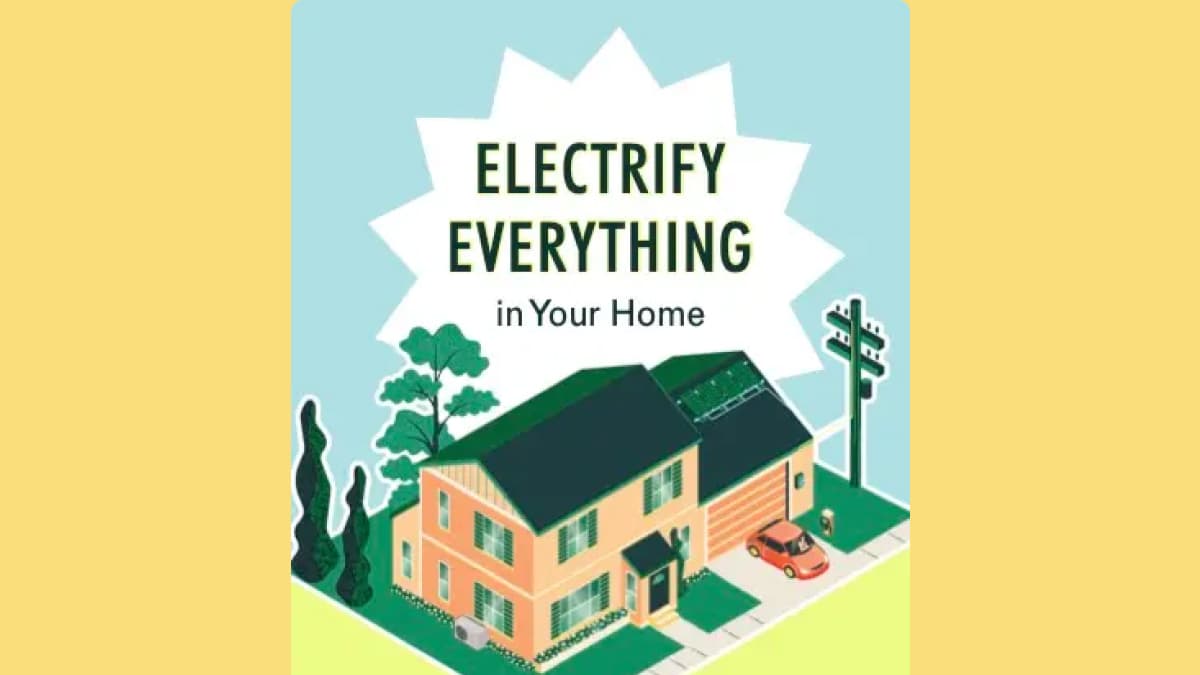New legislation to #ElectrifyEverything!
As you know, we’ve been crunching numbers, writing reports, and reaching out to politicians, grassroots groups and committed people like you in our efforts to fight climate change, create jobs, and save households money by switching to an all-electric economy. Now we’re excited to announce that Senator Martin Heinrich (D-NM) is planning to introduce new infrastructure legislation to help solve a critical piece of the climate puzzle: eliminating the residential use of natural gas, heating oil, and other fossil-fuel burning machines and replacing them with electric ones backed by clean renewable energy.
Sign on to support the Zero Emissions Act of 2021!
The Zero-Emission Homes Act of 2021 will provide rebates for the purchase and installation of electric appliances and equipment in single-family homes and multifamily dwellings, with additional support for low- and moderate- income households, who spend a larger share of their income on energy than other households. As we’ve shown, 42 percent of our carbon emissions come from our households and the cars in our garages, but the upfront costs of switching to electricity – upgrading circuit breaker boxes to handle the increased electric load and replacing furnaces, water heaters, dryers, stoves, and ovens with clean, electric heat pump space heaters (which also cool indoor air), heat pump water heaters, induction or non-induction electric cooktops/ranges/stoves – have been prohibitive to all but the very well-off.
The Zero-Emission Homes Act would authorize billions of dollars over the decade in federal investment to equalize the upfront purchase and installation costs of these efficient and modern electric appliances to those of fossil-fuel powered appliances at the time of replacement. This will spur market demand that will ultimately drive consumer prices lower as well.
A new report from Rewiring America, “Bringing Infrastructure Home: A 50-State Report on the Benefits of Household Electrification”, supports the case, showing that:
85 percent (more than 103 million of the 121 million) of households in America would save money on monthly energy bills today if they were using modern all-electric equipment. The savings are biggest for the 64.9 million households in the United States across every county who are currently using antiquated electric resistance, fuel oil, or propane and would save $496 per year on average.
Electrification would create 462,430 installation jobs in the United States. In addition, it would further generate 80,000 manufacturing jobs and 800,000 indirect and induced jobs.
Electrifying these major household appliances would eliminate the 42 percent increase in childhood asthma symptoms associated with gas stoves, which disproportionately affects low-income households since the size and condition of the home impacts ventilation. It would clean up outdoor air quality and reduce premature deaths in the U.S. by 15,500 per year.
“Now is the time for Congress to hear that Americans understand their own homes are the keystone of our national infrastructure and should be part of any federal investment. We spend more of our lives in our homes than on our highways, and an investment that is crucial to meet our climate goals can pay off in monthly savings, healthier air, and local jobs for every community.”
— Ari Matusiak, Rewiring America CEO
Without electrification, there is no pathway for us to meet our national emissions reductions goals of a zero-emissions economy by 2050 -- the actions needed to have a shot at keeping climate warming within 1.5 degrees Celsius.


